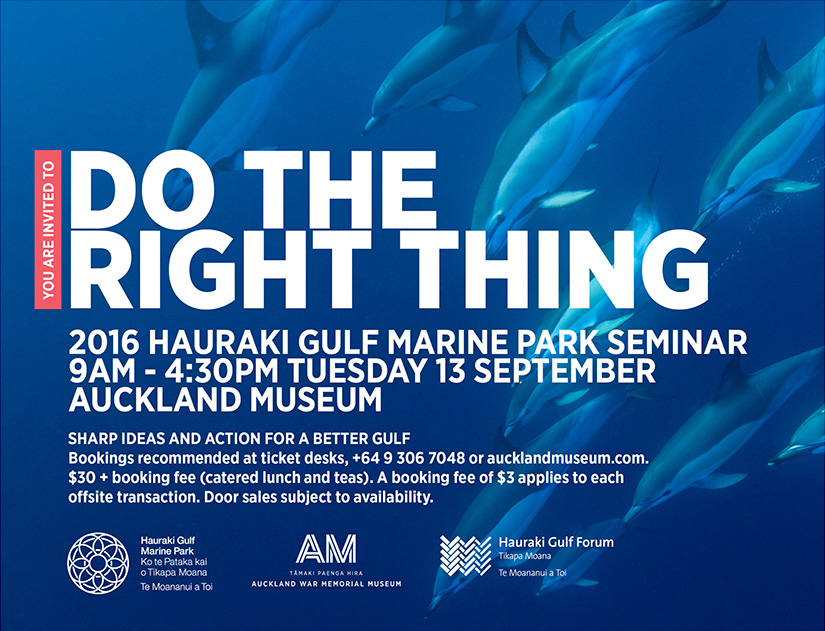Wasteful isn’t good enough
The recent report by Dr Glenn Simmons and others from the University of Auckland Business School, Oxford University, and University of British Columbia has lifted the lid on the wastefulness of the current fisheries management system.
It shows how overfishing and dumping are embedded into the current regime.
The commercial fishers I’ve talked to confirm the ‘Reconstruction of Marine Fisheries Catches for New Zealand (1950-2010)’ report.
They are having to throw dead fish, damaged fish and bycatch overboard or see their profit margins disappear by landing the fish and paying ‘deemed value’ penalties for it.
The Seafood Industry and Ministry for Primary Industries have tried to duck the report’s findings by restating the mantra that “the overwhelming majority of fish caught by commercial fishers came from stocks where sustainability was not a concern” and that it is measures of abundance not extraction that are important for sustainability.
That is simply not good enough.
Many of our stocks may have recovered from levels created by the extremely wasteful boom and bust fisheries of the “think big” 1970s and ‘80s but they are far from the levels considered the sweet spot for utilisation and environmental health.
The Hauraki Gulf snapper stock has been stalled on half what is optimal for too long and current approaches are not going to get us there any time soon.
It’s time we reimagined what our fisheries would look like if we put their management at the service of NZ Inc.
Landing every fish caught regardless of size and species, and being prepared to catch less now to enable stocks to rebuild quickly, would incentivise innovation. We are not serving our interests well by commoditising a few favoured species.
Driving up the value chain in terms of product diversity, quality and utilisation is the recipe for future success. Simmons says his university colleagues are keen to work with industry to advance new business models, high-road value chains and technologies.
This doesn’t have to be rocket science – and it is certainly not confined to the promising but yet unproven $48 million Precision Seafood Harvesting investment of government and industry.
A recent Country Calendar episode showed how Hawkes Bay fisher Karl Warr has re-engineered a modest trawler to catch only what he can sell, by replacing the typical diamond netting cod end with a cage that enables undersize and non-target species to escape. He plans further modifications to scan fish entering the cage and sorting them via an underwater drafting race.
Landed fish are processed on board with help from his wife Sarah and direct marketed to customers who appreciate their Facebook-profiled “better fishing” approach.
Cutting out the middle men – the licenced fish receivers and quota owners whose orders fit market demand but often not what appears on hooks and in nets because of conditions on the day – has improved his returns from minimum wage level.
Not satisfied with supplying fresh fillets from his mainly gurnard catch he is developing by-product lines such as crispy gurnard skin sticks and smoked gurnard roe salami.
The seafood industry and ministry’s repeated claim of “having one the best fisheries management systems in the world” is too easy.
There are a multitude of opportunities for greater returns from our fisheries if we escape the current discourse and broaden our lens. Iceland’s innovative, high-performing fishery is good place to start looking.
Quota owners can only benefit from book keeping and practice that respects the value of every fish in the water. As shareholders in the total allowable commercial catch set by the Minister of Fisheries their assets grow with the size of the pie.
Less waste and more abundance supports the manaakitanga (hospitality) ethic central to Māori culture and it enhances a recreational fishing economy that, a recent New Zealand Sports Fishing Council report suggests, generates 1.7 billion dollars a year and over 8000 jobs.
On Waiheke, fly fishing guide Matt Von Sturmer and Oyster Inn chef Matt McNamara are adding to local marine-derived tourism revenues by enabling their clients to appreciate snapper and kahawai as pinnacles of sporting and culinary achievement.
The same principles and ethics need to be applied across all fisheries regardless of sector or species.
The current review of the fisheries management system is timely so that fishers and fishing companies can stand tall behind Brand NZ.


